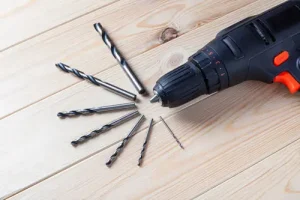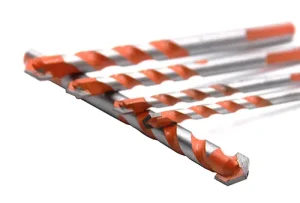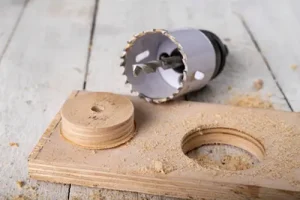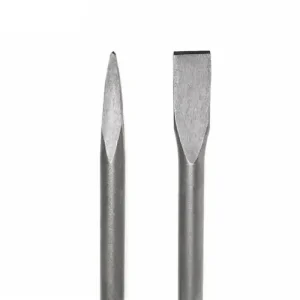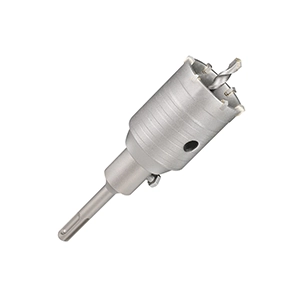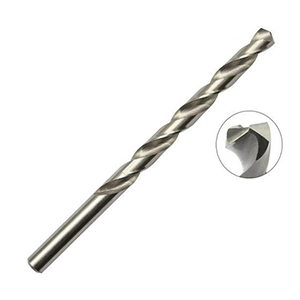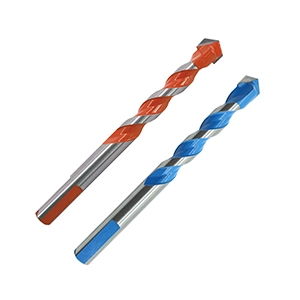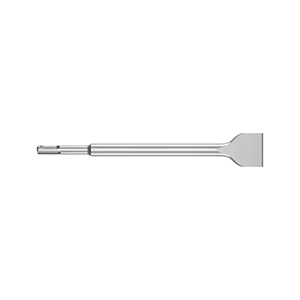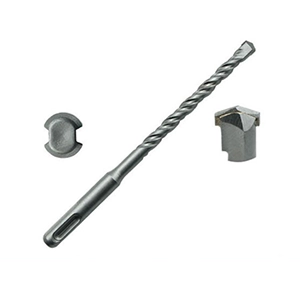Professional Analysis of Masonry Impact Drill Bits: Materials, Structure, Technical Advantages, and Application Scenarios
The masonry impact drill bit is widely used due to its exceptional drilling performance on hard materials, especially in construction and industrial contexts. Designed specifically for high-density materials like concrete, brick, and stone, these drill bits provide durability and impact strength, allowing for efficient impact force transmission during rotation. This article provides a professional analysis of masonry impact drill bits, covering material composition, structural design, technical advantages, and practical applications in a clear, structured manner.
1. Material Composition of Masonry Impact Drill Bits
The performance of masonry impact drill bits is closely tied to the materials used in their construction. Designed to meet the demands of drilling into dense, hard materials, these bits are typically made from a combination of carbide and high-carbon steel, each chosen for their specific strengths in heat resistance, hardness, and durability.
- Carbide (mainly tungsten carbide): The tip of masonry impact drill bits is often made from tungsten carbide, a material known for its extreme hardness (nearly comparable to diamond) and excellent wear resistance. This carbide tip can withstand high temperatures and friction during drilling, ensuring that the bit remains sharp even under intense impact. Additionally, tungsten carbide’s low friction coefficient helps reduce resistance during drilling, improving efficiency.
- High-Carbon Steel: The shank and body are commonly made from high-carbon steel, which provides excellent toughness and resistance to bending. High-carbon steel helps absorb and distribute impact forces, preventing the bit from breaking under high pressure. Its high strength and hardness also ensure stability and efficiency during drilling.
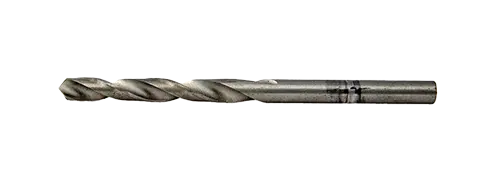
The combination of carbide and high-carbon steel allows masonry impact drill bits to endure rigorous drilling conditions, offering durability that reduces the need for frequent bit replacement, thus lowering operational costs.
2. Structural Design of Masonry Impact Drill Bits
- Tip Design: The tip of masonry impact drill bits is specifically shaped for hard materials, typically featuring a cross or V-shaped design. This structure not only maximizes initial impact force but also stabilizes the bit’s positioning on the material surface, reducing deviation and improving drilling accuracy. Furthermore, the geometry of the tip enhances cutting speed, improving work efficiency.
- Helical Flute Design: The helical flutes are a core structural feature of masonry impact drill bits, helping to channel debris away from the drill hole to prevent clogging. This streamlined flute design enhances bit stability, allowing for smoother operation even under high-speed rotation and impact. The design also reduces wear and tear, ensuring consistent performance over extended use.
- Shank Design: The shank design is crucial for maintaining a secure connection between the bit and the impact drill. Masonry impact drill bits typically feature cylindrical or hexagonal shanks to prevent slippage or detachment during high-speed rotation and impact. The hexagonal shank also allows for quick bit changes, improving operational efficiency.
3. Technical Advantages of Masonry Impact Drill Bits
- High Impact Resistance: Unlike standard drill bits, masonry impact drill bits are engineered for high-frequency impact. Their unique material and structural design efficiently transmit impact force, making them ideal for rapid penetration of dense materials. This impact-rotation combination is especially suited for drilling through various high-density surfaces.
- Strong Wear Resistance: The carbide tip of masonry impact drill bits exhibits exceptional wear resistance, allowing the bit to maintain a sharp cutting edge even with frequent use. This durability reduces the need for replacements, helping to lower the overall cost of operations.
- Heat Resistance: Masonry impact drill bits are able to dissipate heat effectively, preventing overheating due to friction during prolonged drilling sessions. This property helps maintain performance stability, especially in extended, continuous operations.
4. Application Scenarios of Masonry Impact Drill Bits
Thanks to their impressive performance on hard materials, masonry impact drill bits are extensively used across various construction and industrial environments. Key application areas include:
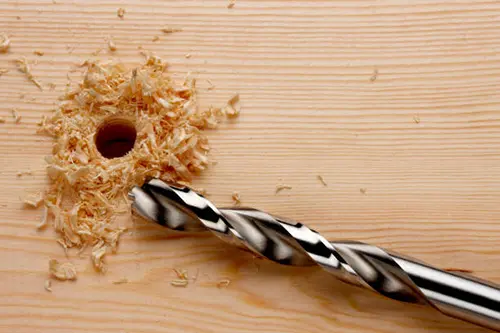
- Construction Projects: In construction, masonry impact drill bits are used for installing anchors, reinforcing bars, and laying conduits. Their high impact strength allows for quick penetration of concrete and brick, making them indispensable tools for construction workers.
- Home Renovation: Masonry impact drill bits are equally useful in home improvement projects. Tasks such as wall drilling, installing hooks, and securing brackets require drilling into hard surfaces like concrete or brick. The durability and efficiency of masonry impact drill bits make them ideal for these applications in residential settings.
- Industrial Installation and Maintenance: In industrial settings, masonry impact drill bits are used for mounting heavy equipment and machinery on hard surfaces. For instance, factory workshops often require concrete drilling for equipment installation and maintenance, and the powerful impact resistance and hardness of masonry drill bits are essential for these demanding tasks.
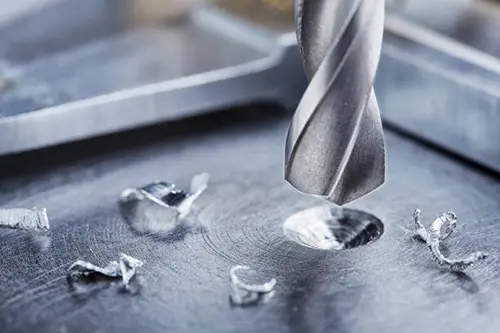
5. Future Development of Masonry Impact Drill Bits
With ongoing advancements in material science, masonry impact drill bits are constantly being improved to meet increasingly complex application needs. Future innovations may include advanced nano-coating technologies to enhance wear resistance and corrosion protection, further extending bit life. Optimizations in manufacturing processes could also enable even higher strength and more precise geometries, improving drilling efficiency and accuracy.
Additionally, future masonry impact drill bits may become more multifunctional and modular to fit a wider range of power tools, accommodating more diverse drilling and installation scenarios. These developments will further enhance the value of masonry impact drill bits in construction, renovation, and industrial applications.
Conclusion
From material composition and structure to technical advantages and application scenarios, masonry impact drill bits hold an indispensable place in professional fields. Their high impact strength, wear resistance, and heat stability make them outstanding performers for drilling high-density materials, ideal for construction, industrial installation, and home improvement. With future advancements, masonry impact drill bits will continue to evolve, providing more efficient and reliable solutions for diverse drilling needs across industries.
